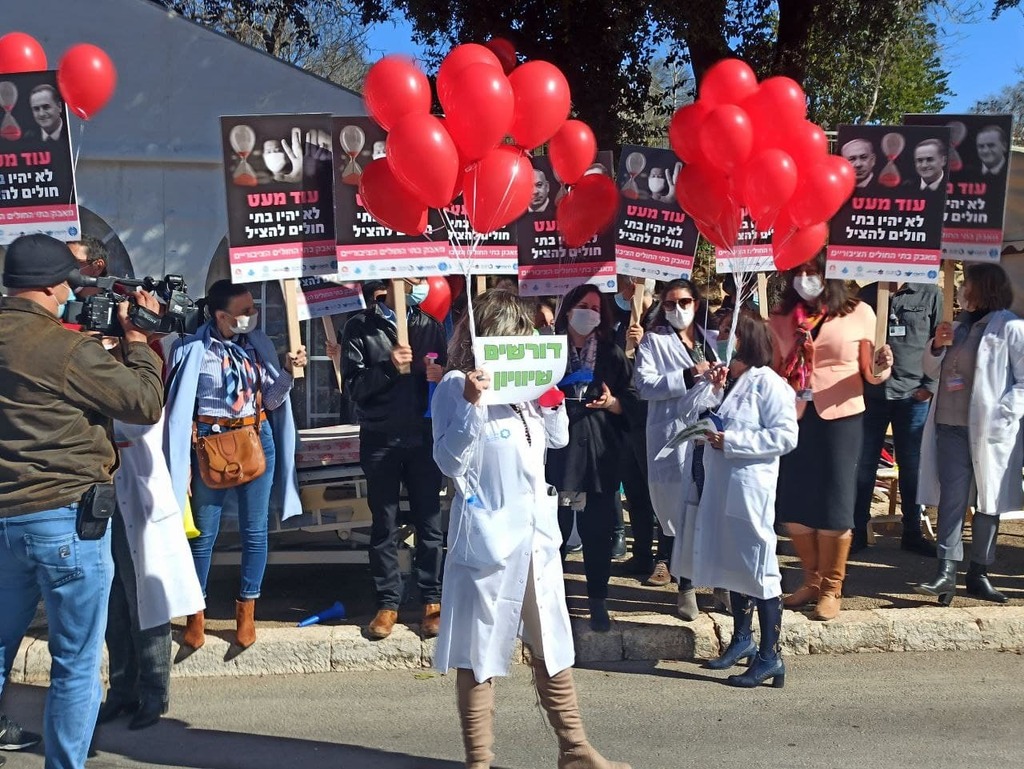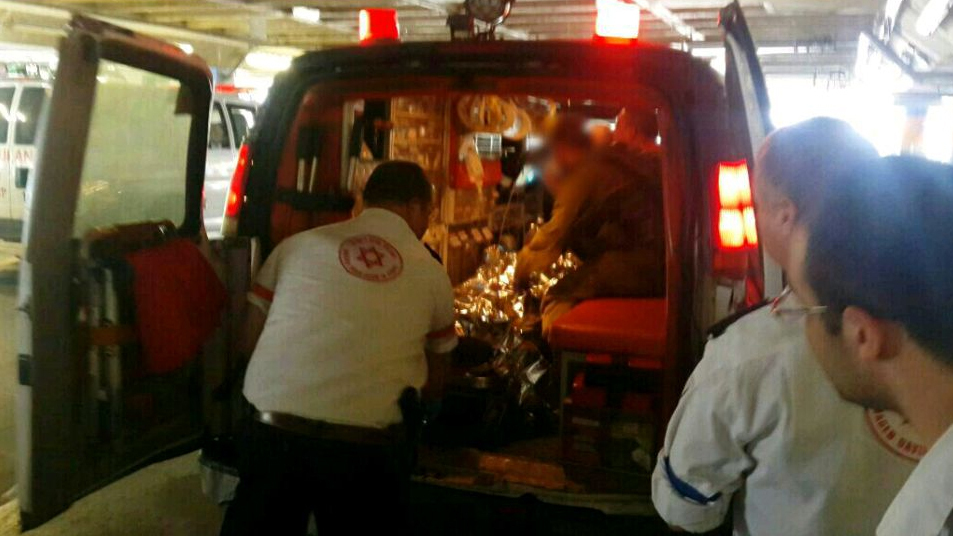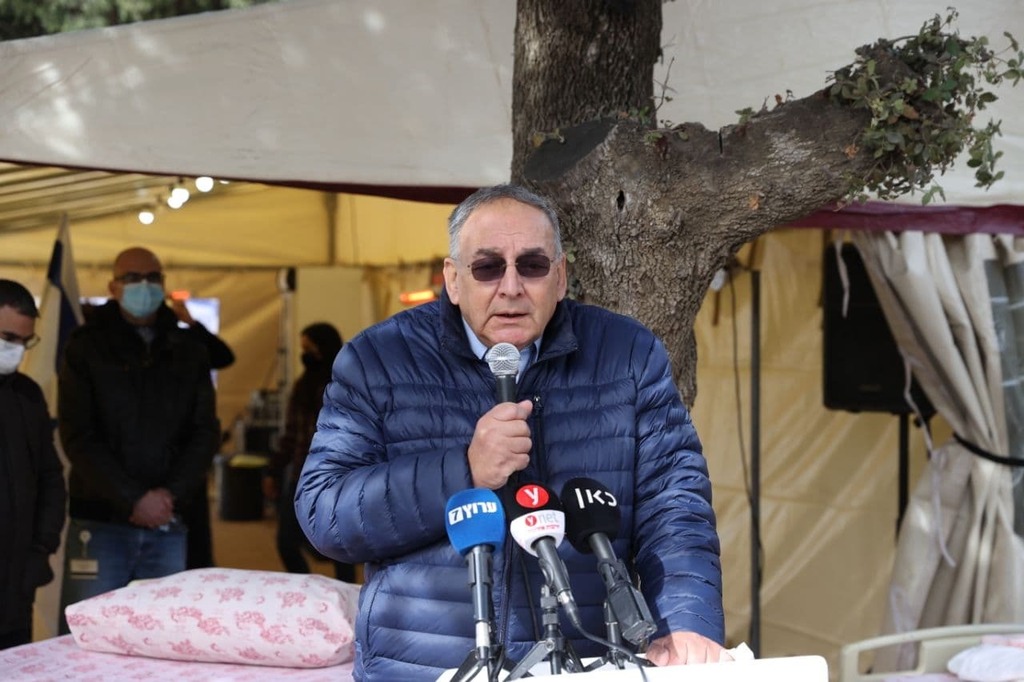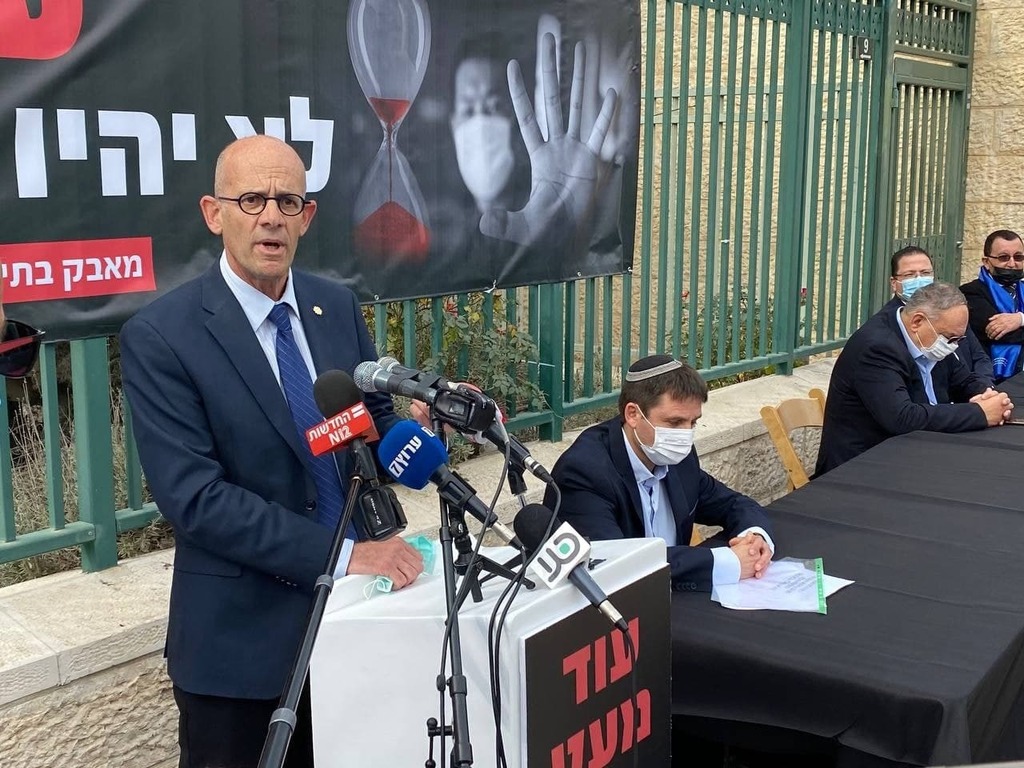Six public medical centers across the country said that starting Sunday, they will not receive ambulances or emergency patients at their facilities over a "lack of supply and medicine."
The country's hospitals and heads of departments have on multiple occasions slammed the government for the lack of assistance amid the pandemic. Israel earlier this week topped 10,000 new daily cases and the number of patients in serious condition has also reached a record high.
"Following severe lack of supplies and medicine, we hereby announce that starting Sunday 24.1.2021 at 6am, you will not be able to send ambulances and patients that do not require a life-saving procedure or are infected with coronavirus to our facilities," said Sharee Zedek, Laniado, Mayanei HaYeshua and three other hospitals in Nazareth in an address to Magen David Adom chief Eli Bin.
The announcement came following the Finance Ministry's continued reluctance to talk with the public hospitals' officials over what they say is a lack of overall assistance.
Earlier Thursday, some 200 doctors, nurses and medical staff from seven public hospitals protested outside the Finance Ministry's offices in Jerusalem.
Over the past week, Jerusalem's Hadassah and Sharee Zedek, Bnei Brak's Mayanei HaYeshu and Netanya's Laniado medical centers as well as the English, French and Sacred Family hospitals in Nazareth, have butted heads with the Finance Ministry over budgetary aid.
4 View gallery


Medical workers protesting outside the Finance Ministry Thursday
(Photo: Haim Golditch)
Unlike state hospitals and those belonging to the Clalit health fund, which receive both government funds and payments from HMOs for their use, public hospitals have far smaller sources of income.
All seven hospitals say that they are on the brink of financial collapse due to selective budgeting and are demanding the state to immediately allocate NIS 1.2 billion to cover costs.
Public hospitals also have a far greater capacity in their coronavirus wards, averaging somewhere between 83% and 93%.
"It is a disgrace that we are forced to protest against the government's policy not letting us treat those requiring treatment," said Prof. Zeev Rotstein, CEO of Hadassah Medical Center.
"What did we ask for? The moon? We asked to let out wonderful staff standing here to continue saving patients, as we have successfully done over the past year."
Rothstein said that there are currently 140 coronavirus patients being treated at the hospital, being "kept alive by the staff by the skin of their teeth."
"I probably missed the part in medical school where you have to take your people to the streets in protest," said Prof. Ofer Marin, CEO of Sharee Zedek Medical Center.
"I stand here in great shame. These days, the book about Israel's fight against the coronavirus is being written. We all want to be proud of what we have done. We do this to the best of our abilities, with immense dedication."




